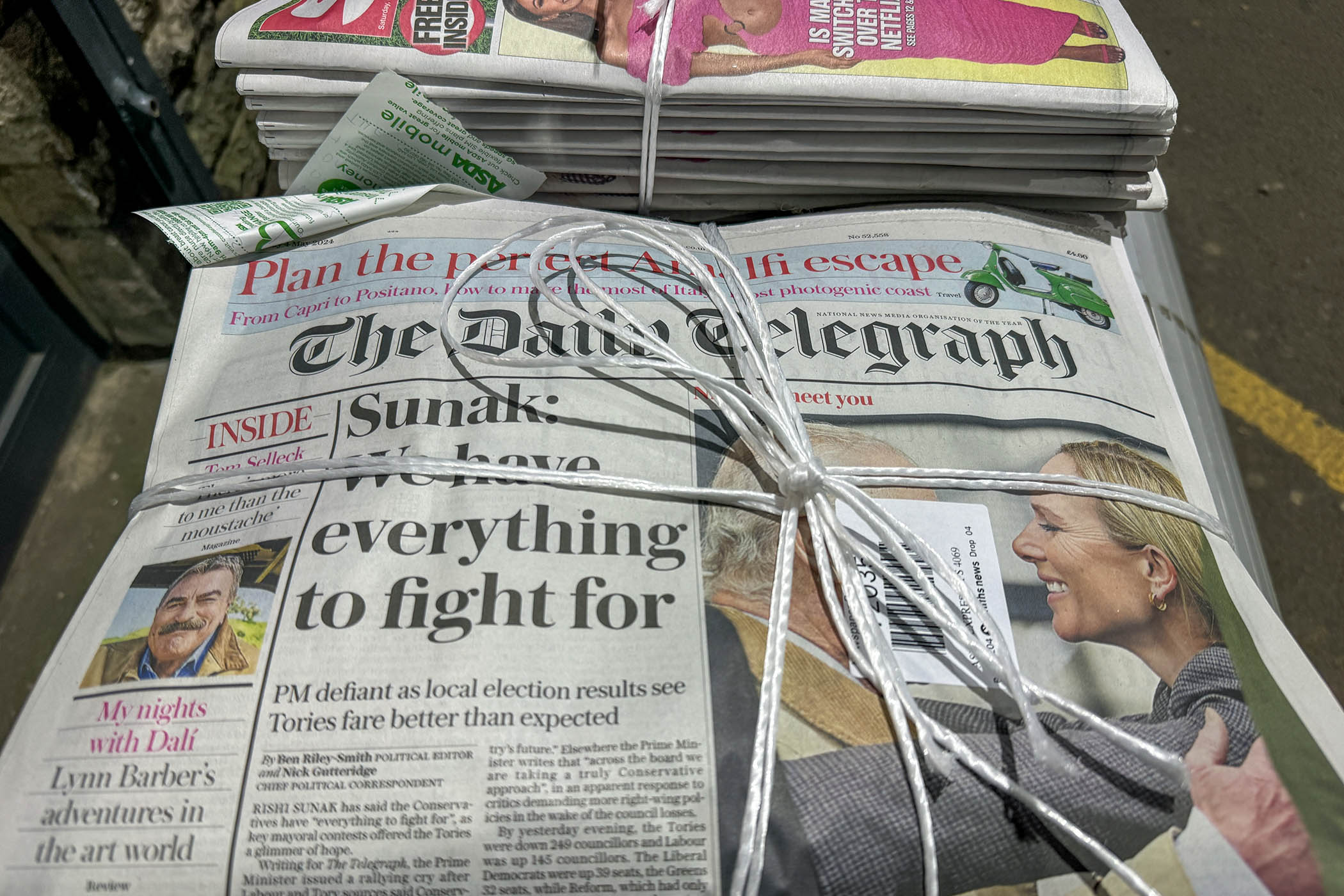The future of the Daily Telegraph is going to auction after US private equity firm RedBird Capital pulled its consortium out of a deal to buy the newspaper on Friday. Speculation has grown that the Daily Mail group will bid for it.
While regulatory uncertainty and the politics of the bidders were cited as reasons for last week’s outcome, analysts believe the Abu Dhabi-led consortium that rescued the paper in 2023 will not accept bids of less than £500m. According to analysts, the bid submitted to the Department for Culture Media & Sport (DCMS) was missing at least 10% of the bid price. The final sum is believed to be £80m below main owner IMI’s preferred £500m.
“Lisa Nandy [the culture minister] cannot trigger a public interest intervention notice without the fund being done and dusted or it would be too speculative – and potentially raise issues for the Foreign State Intervention (FSI) regime over fears that the missing stake would be taken by a foreign investor friendly to Abu Dhabi after the bid went through,” one analyst said.
Within the Telegraph, it’s understood there’s resistance to either Dovid Efune, the owner of the New York Sun, or David Montgomery, the former boss of Mirror newspapers, remounting bids for the title. Likewise with Todd Boehly, chair of Chelsea FC.
That has led to speculation about an approach from Lord Rothermere’s Daily Mail & General Trust, which pulled out of an earlier bid in July 2024, saying it had “the capital and resources to make the Telegraph a long-term global success” but could not justify the required investment, given the legal and regulatory issues its bid would face. It is expected to encounter the same challenges this time.
DMGT’s £35m for 10% in the RedBird consortium suggests it had estimated the Telegraph’s equity value at £350m, while another £150m in debt financing was provided to make up the total. That's higher than the value suggested by Paul Marshall, who owns UnHerd and the Spectator and is understood to be resurrecting his £300m offer. Sources close to the Telegraph say they hear IMI may be prepared to drop its £500m price tag at auction. Analysts close to Sheikh Mansour bin Zayed Al Nahyan’s investment fund doubt this. “There is immense bad feeling in Abu Dhabi over the way the sheikh, a heavy investor in the UK, was treated by the UK government,” one adviser said. “He is adamant about realising a book value of £500m. If he had relented at any time since March 2024, when the merger came off the rails, then it might have been sold.” The internal politics of the emirate may have a part to play. “IMI’s chairman Dr. Sultan Ahmed Al Jaber cannot be seen to be the member of government who delivers a financial loss over the Telegraph on top of the humiliation of laws changed to bar the Sheikh,” a Middle East expert suggests
Neither the UK government nor RedBird IMI can set any price in the forthcoming auction, the first of which failed in December 2024 after preferred bidder Efune failed to raise £500m. This time, the adviser mooted, a bidder friendly to IMI’s interests might offer £500m to ensure an effective reserve price. UK media analysts are unimpressed with this valuation.
Saturday’s leader in the Telegraph op-ed pages called for a fast sale without a reserve price to expedite the process – a sharp contrast with its recent demands for thorough investigation and regulatory examination of the RedBird bid. “Telegraph Media Group’s 2024 performance lands where you might expect a business trapped in a two-year ownership freeze,” said Abi Watson at Enders Analysis. “Its topline was essentially flat - up 1% to £279m - with operating profit broadly unchanged. The deeper issue is structural. TMG still derives 55% of revenue from print, or closer to 60% if you strip out ‘other revenues’ like platform licensing and eCommerce. Digital subscriptions and digital advertising together account for around 40% of core revenues, but they are still not scaling fast enough to offset print erosion - not exactly what any bidder would want to see in a legacy-to-digital transition story.”
Even with that growth, Watson estimates print Average Revenue Per User (ARPU) remains roughly 4.5x higher than digital. “That imbalance only works because both products sit on a shared cost base, meaning print readers effectively cross-subsidise digital margins,” she explains. “But with print subscriptions shrinking by around 12% year on year, there is an inflection point approaching. The digital business will need to stand on its own economics.”
If the auction is entirely transparent and no shill bidder enters the process, most analysts agree no-one will be prepared to pay £500m. “Private equity is a brutally demanding model and turning the paper into a billion-pound business seems like a distant prospect based on industry trends,” said one.
Newsletters
Choose the newsletters you want to receive
View more
For information about how The Observer protects your data, read our Privacy Policy
RedBird Capital said: “We remain fully confident that the Telegraph and its world-class team have a bright future ahead of them and we will work hard to help secure a solution which is in the best interests of employees and readers.”
Photograph by Matt Cardy/Getty Images



